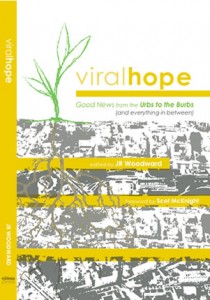Inevitably there comes a point in the life of a church planter in which you begin to pastor more than you “plant”. Is this bad? How do we continue to cultivate a missional church, while also attending to the growing pastoral needs of our communities? When does planting stop and pastoring start?
When to Pastor in a Plant?
An honest answer to this question will serve you well. Only then will a theoretical answer begin to bear fruit. Another way to get at this issue is to ask when does pastoring start in the life of a planter? I believe it should start immediately. Too many planters fail their churches because they plant not pastor. Planters are apostles but they are also elder-pastors. To be sure, not all apostles are static traditional pastors and not all pastors are church planting apostles. However, true apostles have the capacity to pastor, at least for a season. Check out Paul, Peter, Epaphras. They all planted and they all pastored. They loved the whole life of the church, not just birthing her. Pastors are called to shepherd apostolic—sent—communities, so they should be able to function missionally.
Equipping for Pastoral and Missional Community
As our communities’ needs grow, how do we effectively live, lead, and serve in the tension between pastoring and planting, between community and mission? JR Woodward offers some practical help in his forthcoming book Re-Sketching the Church. He argues for the centrality of “equippers” for effective missional church life. Ephesians 4 is his locus classicus for equipping the missional church, a good choice. In Ephesians 4 the various equipping gifts are laid out for the purpose of equipping “the saints for the work of ministry, for building up the body of Christ, until we all attain to the unity of the faith and of the knowledge of the Son of God, to mature manhood, to the measure of the stature of the fullness of Christ.” Though the purpose of these equippers for building up the internal church—community—is frequently noted, the external dimension of being the church—mission—is often overlooked in these roles. Woodward picks up on this absence of a mission. Quoting Frost and Hirsch, he notes that the five equippers are: “the very mechanism for achieving mission and ministry effectiveness as well as Christian maturity.” Alan Roxburgh makes a very similar point in his chapter in Missional Leader. Here’s the point—leaders are not only to be missional leaders; they are to equip and release missional leaders through, at least, five different roles with various missional “destinations” or expressions. In other words, if the success of your church being missional relies mainly upon you, then you don’t have a missional church.
Missional Equippers
Woodward has contextualized the five roles of apostle, prophet, pastor, evangelist, and teacher, calling them: heart revealer, dream awakener, soul healer, story teller, and light giver. All sounds a bit new age, but Woodward stays pretty close to the biblical meanings. Noting a great insight by Marcus Barth, he points out that all but one of these roles had vocational equivalents in the Greco-Roman context. This means that anything but a prophet had a cultural outlet for missional expression. There was a socially accepted place for teachers, apostles, evangelists, and pastors. And so it is today. Consider your role and your equippers’ roles in this light. If you are a teacher, how can you teach in service of the city, as well as in service of the church? Run with it.
Perhaps the planting versus pastoring dilemma can be solved by raising up disciples who are pastors and missionaries, pastors who are missional and missionaries who are pastoral. This, of course, requires leadership and equipping. Taking Woodward (and Paul)’s cue, we do well to look for and cultivate the “five equippers” in our own churches to advance both community and mission. In short, cultivate missional equippers.
When does planting stop and pastoring start? Never. Planters should plant reproducing churches and planters should always pastor. How? Raise up missional equippers that “pastor” and “plant” your church, that lead in community and mission. Pastoring and planting should start and stop together, when you are regenerated and when you die.

